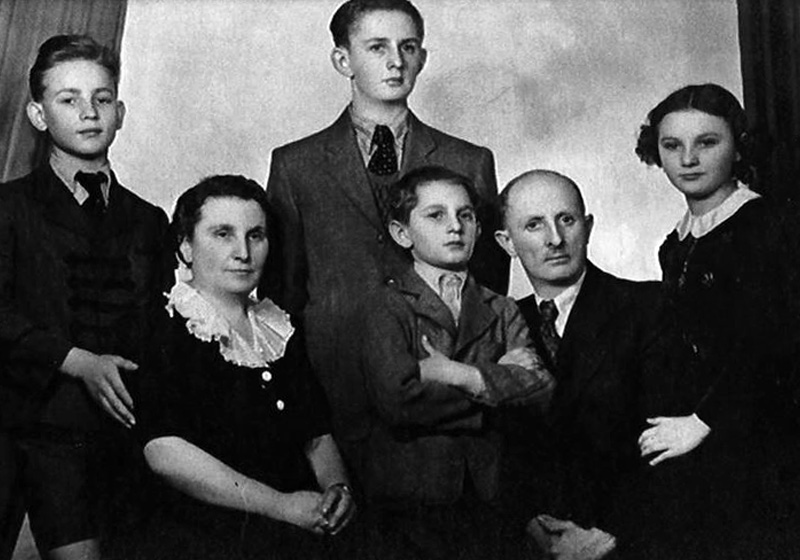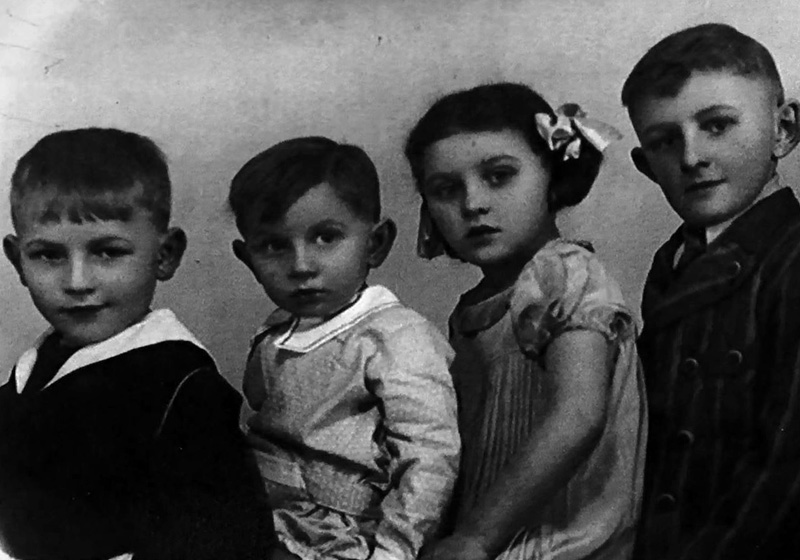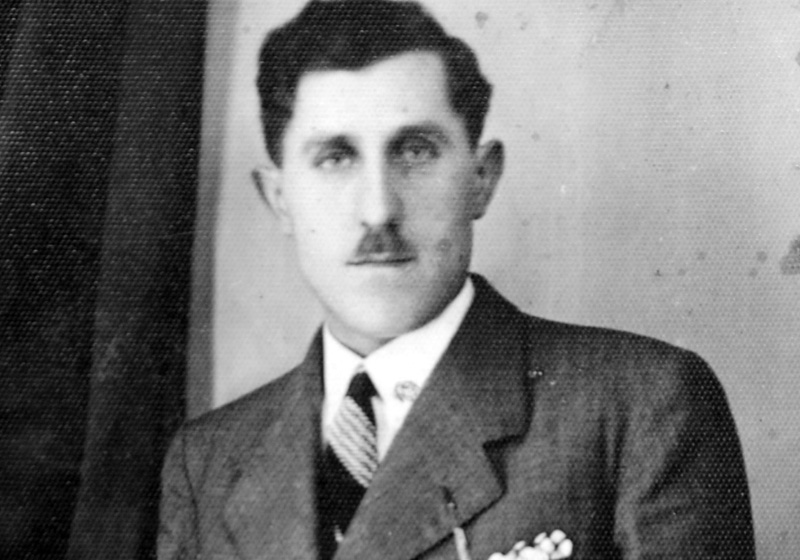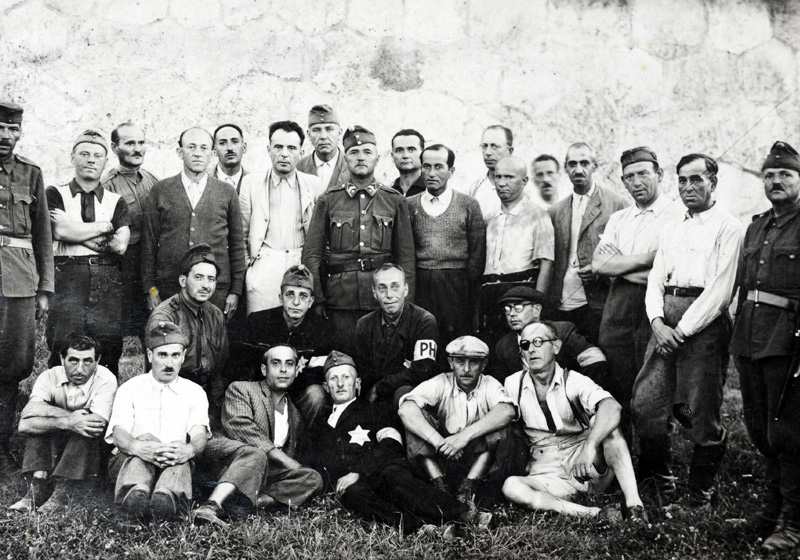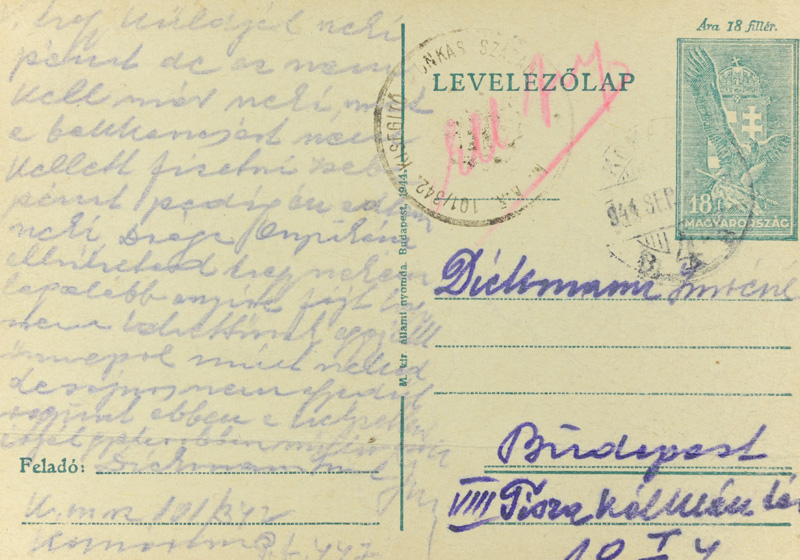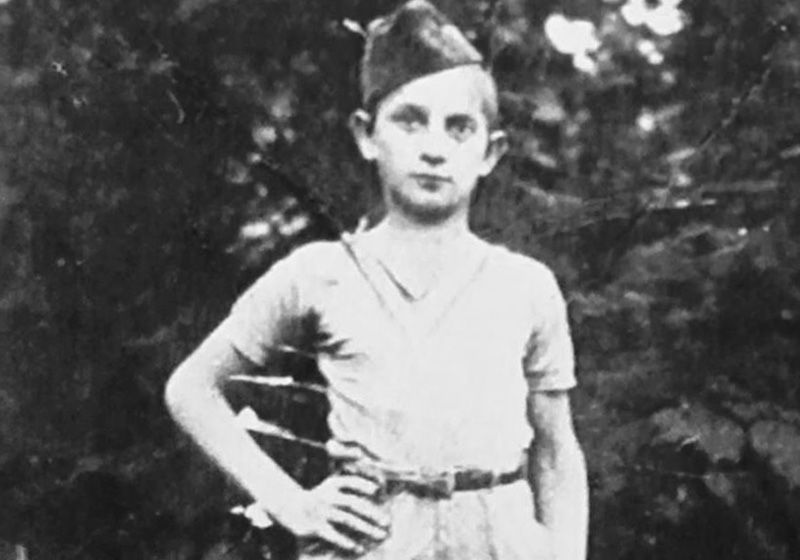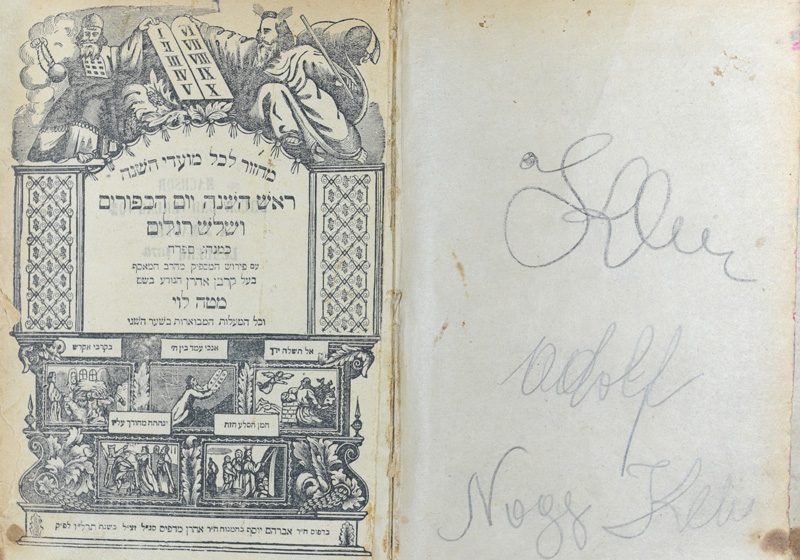Children's Homes for Holocaust Survivors
"My Lost Childhood"
András-Shimon Dickmann: A Young Boy at the Religious Youth Village in Deszk
Imre Ze'ev-Chaim Dickmann and his wife Gisella-Tova née Klein lived in Budapest. Imre was a wholesaler and importer of citrus fruit from Italy, and he had a storeroom and a fruit and vegetable shop in Budapest. Gisella gave birth to all four of her children at her parents' house in the town of Oros: Sandor-Shaya (b. 1925), Ferenc-Yitzhak (b. 1929), Klara-Leah (b. 1931) and András-Shimon (b. 1934). The children attended the local school and the family maintained a traditional Jewish lifestyle. The extended family lived in north-east Hungary, and the Dickmanns would join them for the summer months.
In 1941, Imre's brother Ignac Dickmann was recruited to the Hungarian Army labor battalions, and shortly thereafter, the family was notified of his death at the front. Later, they discovered that Hungarian soldiers had abused and murdered him. The family managed to bury him in the Jewish cemetery in Budapest. On 19 March 1944, the Germans invaded Hungary. Imre used to listen to the radio, and was aware of the Nazi's crimes against the Jews all over Europe. He brought his parents-in-law, his sister and her three daughters, Rosi, Lili and Aliosa, and Rosi's daughter, to Budapest. Gisella's parents lived with them and he rented an apartment for his sister and her family. His sister's husband and Rosi's husband had both been drafted to the labor battalions.
On 18 June 1944, Imre's 45th birthday, he was taken for forced labor in a camp in Hungary. He was transferred to several different camps, and sent a few postcards to his family. About a month later, Sandor was also taken. Gisella and the other three children remained in Budapest. They were placed in one of the marked houses, and lived in an apartment together with Gisella's parents, Imre's sister and her family, and another family. Living conditions were very cramped, and they all shared one bathroom.
In October 1944, the Germans mandated the takeover of Hungary by the Arrow Cross, led by Salasi, and terrorization of the Jews of Budapest began. Ferenc was taken for forced labor following an edict ordering all males sixteen and over to report for labor removing fallen masonry. Initially, he returned home every evening, but a few days later, a Hungarian policeman arrived and told Gisella to prepare a bag for Ferenc with food and personal belongings that he could take with him to the labor camp. Rosi was also taken to the camp. Arrow Cross men came to the house where the Dickmanns were staying, and told all the residents to go out to the courtyard. From there they were taken to a horse-racing stadium where many Jews had been gathered, and ordered to hand over all items of value and the money in their possession. Gisella's mother was taken away by two gendarmes, and never seen again. Gisella, her father, Imre's sister and the children returned to the apartment stripped of their belongings.
In November, a ghetto was established in Budapest. Before their entry into the ghetto, a Christian friend of the family had organized a hiding place for Shimon, his sister Klara, Lili and Aliosa, and Rosi's two-year-old daughter. The hiding place was the cellar of movie actress Maria Lazar's home. Lazar lived in a mansion in Buda, and hid several Jewish children in her cellar. They stayed there for a few weeks, but after being betrayed, they left and went to the orphanage in the ghetto. One day, the children at the orphanage, including Shimon, his sister and cousins were taken by Arrow Cross men. By chance, Gisella and her sister-in-law happened to be looking out of the window of their house in the ghetto, and saw their children being taken away. They managed to sneak inside the place where the children were detained before they left the ghetto, and to pull them out from amongst the other children and to hide them in the ghetto until liberation.
After liberation, Gisella and her children waited for Imre, Sandor and Ferenc to return home.
Shimon recalls:
Mother was in a bad way. Every knock on the door, every man in the street, filled her with hope that perhaps it was Father or one of the boys, and each time, she was disappointed anew. The anticipation and expectation drove us all crazy.
Sandor survived several camps and sent his mother a message that he was alive. In 1946, he managed to return to Budapest. Gisella and her children learned from returning survivors that Ferenc had been deported to Auschwitz and murdered in March 1945, and that Imre had been murdered in Bergen-Belsen in April 1945, one day before the liberation of the camp.
Finding it hard to make ends meet, Gisella sent 11-year-old Shimon to the children's home in Deszk, 200 km away from Budapest. Shimon lived there from February 1946-April 1949. From time to time, he travelled to Budapest to see his mother.
Shimon recalls:
I was one of the veterans… At first, we were sometimes a little hungry, but after a few months, we had a wonderful life there. We learned to read, write and speak Hebrew. They imbued us with Zionism. … We were divided into groups in Deszk. The ultimate aim was to send us to Eretz Israel. … I was in the "Zor'im" group, which was suitable for my age. We had a very, very good life, after a while there was good food and we received clothes. I had been in the ghetto, but there were children there who had actually come from the concentration camps, with no father or mother.
In 1963, Shimon Dickmann immigrated to Israel with his wife Vera and their daughter Yehudit. The family settled in Yokneam.


